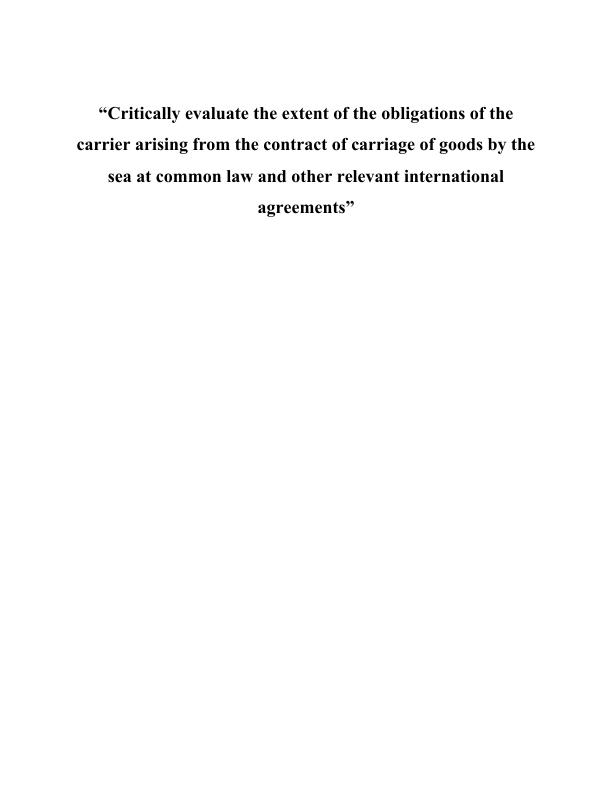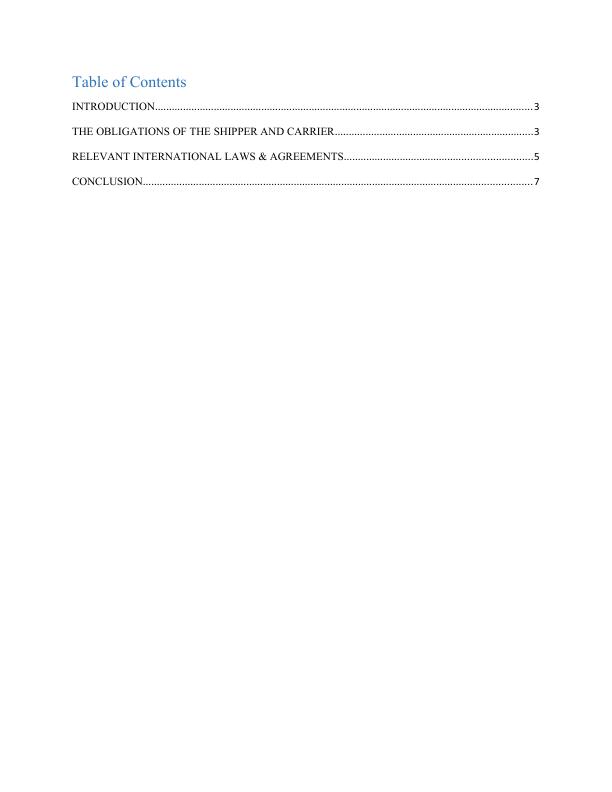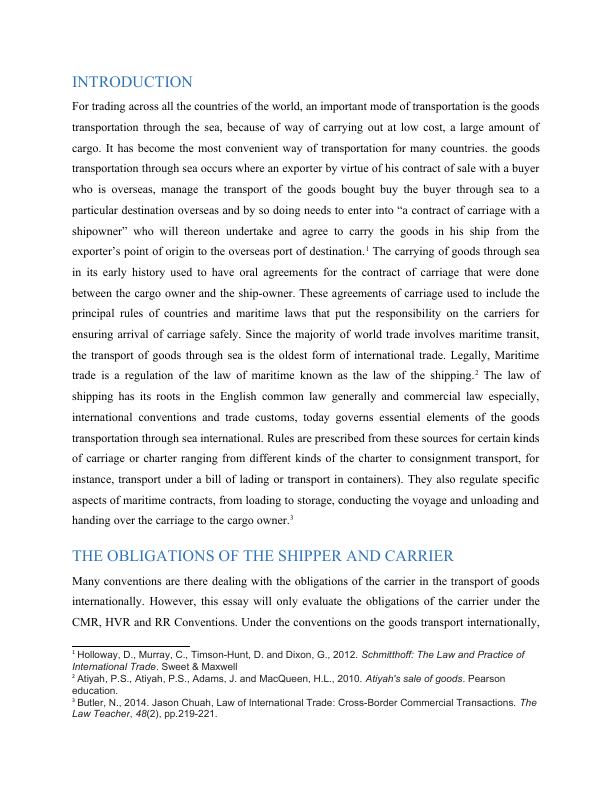Shipper-Carrier Obligations- International Laws and Agreement
8 Pages2231 Words30 Views
Added on 2022-03-24
About This Document
For trading across all the countries of the world, an important mode of transportation is the goods transportation through the sea, because of way of carrying out at low cost, a large amount of cargo. Since the majority of world trade involves maritime transit, the transport of goods through sea is the oldest form of international trade. Legally, Maritime trade is a regulation of the law of maritime known as the law of the shipping.
Shipper-Carrier Obligations- International Laws and Agreement
Added on 2022-03-24
ShareRelated Documents
End of preview
Want to access all the pages? Upload your documents or become a member.
The Carriage of Goods by Sea Act
|7
|2528
|43
International Trade Regulation and Practice
|10
|2498
|20
International Trade Law Assignment
|10
|2174
|51
What is free or freight on board (FOB)?
|5
|727
|12
International Maritime Law Article 2022
|10
|2868
|30
Industry Research Project - Desklib
|10
|2958
|122



